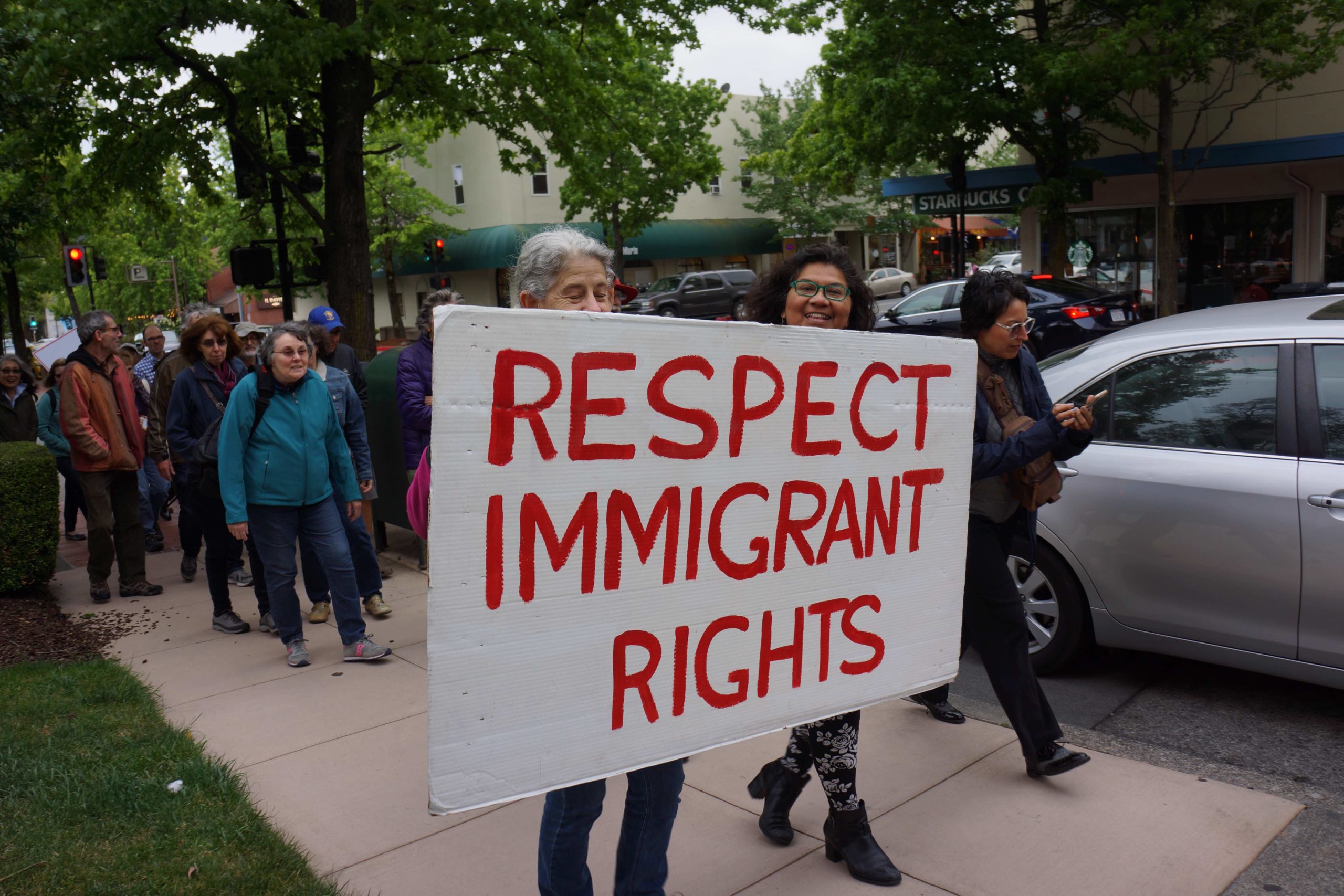On a brisk May evening, 140 people marched though downtown San Rafael singing songs in English and Spanish. Two people held a sign so large that just their heads and their legs from the knees down were visible. “Respect immigrant rights,” the sign read in red letters. As the group marched to St. Raphael Church, a few passersby joined in. Inside the church’s gym, the marchers — made up of members from congregations of different faiths — held a rally to show support for immigrant communities targeted by harsh federal policies. Two young women shared their personal stories of growing up in immigrant families, and the pain and trauma of separation from a parent who had been detained or deported.
The rally was just the latest event put on by Love Lives in Marin, an initiative of the Marin Interfaith Council (MIC) that promotes equal treatment and a community free from discrimination.
Scott Quinn, MIC’s executive director, says the idea behind Love Lives in Marin is to combat the hateful political landscape and deteriorating public discourse with messages of positivity and inclusion. Its first event was a vigil in response to the white nationalist rally that took place in Charlottesville last year. While MIC celebrates faith and advocates for immigrant, housing and education rights, it sees its Love Lives in Marin work as a way to bring people together through inspiration.
“What can we do where we can highlight acts of radical welcome and inclusion in order to inspire more?” Quinn says of the thought behind the initiative. He hopes the positivity of the program becomes contagious, “so that the entire community can stand in solidarity and say, ‘You are welcome here in the fullness of your humanity as you are.’”
In October 2017, The San Francisco Foundation awarded the Marin Interfaith Council $15,000 from its Rapid Response Fund. The grant allows for a staff member to coordinate Love Lives in Marin, which includes events such as panels and vigils, a social media campaign, and a monthly challenge that encourages community members to get involved with local nonprofit organizations, like the food bank or immigrant rights groups, or to learn about issues like women’s history.
“People get to know who’s in their community better in a way that says, ‘I want to make sure that you’re having just as great [of] an experience as I do because you matter and you’re my neighbor,” says Ashley Reid, who works on Love Lives in Marin.
The initiative is powerful not only for sharing the stories of those who have been marginalized by the wider community, Quinn says, but also for letting people know that they are not alone. At the May immigration rally, one of the young women who addressed the crowd told Quinn that she didn’t feel alone as she spoke out. “That’s why we’re doing this, so you know that we have your back. We’re with you,” Quinn told her. “I think that’s the spirit of Love Lives in Marin.”
Author: Melissa Hung, foundation consultant


